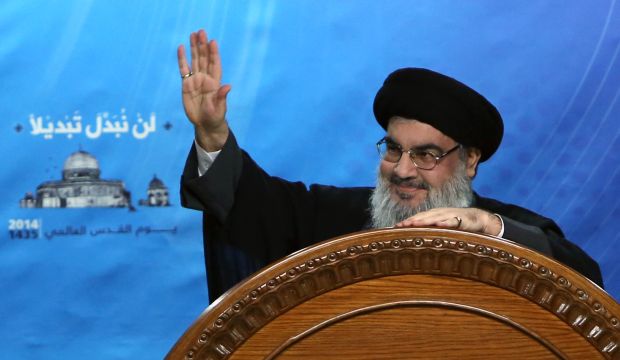The statements issued from Tehran recently, by senior and junior officials, regarding Saudi Arabia can only be described as “panicked,” while the same goes for the speeches and statements issued by Iran’s agents in the region, such as Hezbollah chief Hassan Nasrallah. However, a well-informed Lebanese source has told me recently that there might be more behind Nasrallah’s latest speech.
The source told me that what has caused Nasrallah to lose his patience in this manner and issue such unprecedented comments against Saudi Arabia following Operation Decisive Storm is the rumor, that is rife throughout Beirut’s Southern Suburbs, that Hezbollah is not just involved in the war in Syria and Yemen, but is even on Saudi Arabia’s own borders. The claim is that Iran and its followers are now in the ascendancy in the region, from Yemen to Iraq, and that Saudi Arabia has its back against the wall. Operation Decisive Storm, according to this false narrative, was nothing more than a last-ditch attempt to demonstrate strength and repel the Iranian-led advance. This belief has led Iran, and Nasrallah, to completely lose their minds, amid the belief that the Houthis’ control of Yemen is an important sign amid the retreat of Iran’s interests in Syria.
This false reading of the situation demonstrates one thing clearly: every maniac in the region is targeting Saudi Arabia, one way or another. Otherwise, what is the difference between Al-Qaeda and Hezbollah? What is the difference between Iran and the Islamic State of Iraq and Syria (ISIS)? The answer is simple: they are all trying to find a launchpad from which to target Saudi Arabia, after the failure of all their efforts to infiltrate the Kingdom from within. This is something that Iran, Al-Qaeda, Hezbollah, ISIS and other extremist group have tried in the past, but all such attempts have met with resounding failure. For all the region’s maniacs, Saudi Arabia represents a source of unparalleled legitimacy.
Iran believes that targeting and overtaking Saudi Arabia will represent a victory for Tehran’s project to “export the Khomeinist revolution” that is being served by Hezbollah in Beirut’s Southern Suburbs. As for Al-Qaeda and ISIS, and before them the Muslim Brotherhood, Saudi Arabia represents a source of religious legitimacy that would grant them the capability to practically take over the region and the entire Islamic world. This is why Al-Qaeda has fought so hard to secure its presence in Yemen—and the same goes for the Iranian regime through its Houthi allies. The same even applies to former Yemeni president Ali Abdullah Saleh, who believed that he could extort Riyadh’s rationality to remain in power. However, ultimately Saleh’s reading of the situation was wrong, and the same goes for Iran.
In reality, the Saudi-led Operation Decisive Storm struck a decisive blow against Iran and its regional followers, and even Al-Qaeda. Without a doubt, Decisive Storm struck a blow against all the maniacs of the region, militarily, politically, and even in the media. These maniacs have now been exposed for the world to see, and we have seen the political scene in Yemen and the region change drastically as a result, because Saudi Arabia’s voice of reason is strong enough to drown out all of the region’s crazies.
